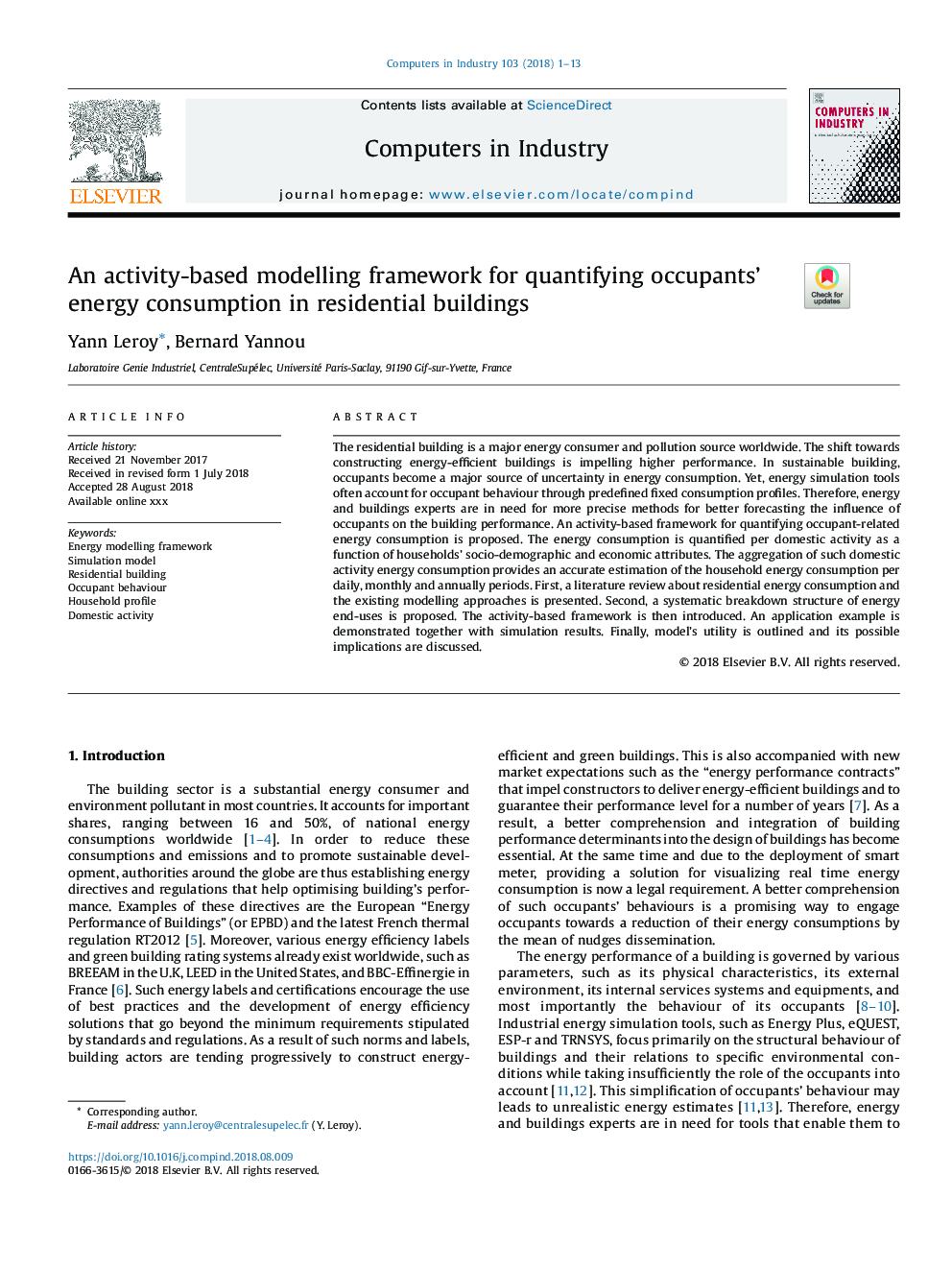| Article ID | Journal | Published Year | Pages | File Type |
|---|---|---|---|---|
| 10225958 | Computers in Industry | 2018 | 13 Pages |
Abstract
The residential building is a major energy consumer and pollution source worldwide. The shift towards constructing energy-efficient buildings is impelling higher performance. In sustainable building, occupants become a major source of uncertainty in energy consumption. Yet, energy simulation tools often account for occupant behaviour through predefined fixed consumption profiles. Therefore, energy and buildings experts are in need for more precise methods for better forecasting the influence of occupants on the building performance. An activity-based framework for quantifying occupant-related energy consumption is proposed. The energy consumption is quantified per domestic activity as a function of households' socio-demographic and economic attributes. The aggregation of such domestic activity energy consumption provides an accurate estimation of the household energy consumption per daily, monthly and annually periods. First, a literature review about residential energy consumption and the existing modelling approaches is presented. Second, a systematic breakdown structure of energy end-uses is proposed. The activity-based framework is then introduced. An application example is demonstrated together with simulation results. Finally, model's utility is outlined and its possible implications are discussed.
Related Topics
Physical Sciences and Engineering
Computer Science
Computer Science Applications
Authors
Yann Leroy, Bernard Yannou,
